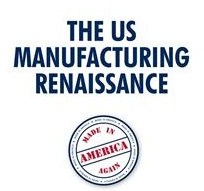U.S. Manufacturing Has a Promising Future, Says Consultant
U.S. manufacturing is on the brink of a renaissance fueled by rising wages in China and increased productivity at home, according to Hal Sirkin, senior partner at The Boston Consulting Group.
Boston Consulting is a global management-consulting firm and business adviser. Sirkin, who blogs for Bloomberg Businessweek, was in Louisville to speak to leaders of the Bluegrass Economic Advance Movement, or BEAM, board Thursday morning.
China leveraged its low wages to create jobs. It built infrastructure and ports to accommodate businesses and clustered similar industries within its cities.
“China made sure manufacturers had everything they needed to succeed,” he said.
However, its success caused its economy to change quickly, he added.
In China’s Yangtze River Delta, for instance, workers were being paid average wages of 72 cents per hour in 2000. Those wages rose to $2.79 per hour by 2010. That growth in wages is expected to continue, he said.
Meantime, U.S. manufacturing has become more efficient, using fewer workers, meaning that many manufacturers are finding it less expensive to establish operations stateside.
“The threat from China is large,” he said. But he added, “the tide is turning in favor of U.S. companies.”
He also praised the BEAM initiative, which seeks to grow manufacturing through cooperation among leaders in Louisville and Lexington.
“BEAM is the prototype for what we need to do to make the economy work,” he said. “Bringing together areas is a very important thing. This is key to American competitiveness.”
China leveraged its low wages to create jobs. It built infrastructure and ports to accommodate businesses and clustered similar industries within its cities.
“China made sure manufacturers had everything they needed to succeed,” he said.
However, its success caused its economy to change quickly, he added.
In China’s Yangtze River Delta, for instance, workers were being paid average wages of 72 cents per hour in 2000. Those wages rose to $2.79 per hour by 2010. That growth in wages is expected to continue, he said.
Meantime, U.S. manufacturing has become more efficient, using fewer workers, meaning that many manufacturers are finding it less expensive to establish operations stateside.
“The threat from China is large,” he said. But he added, “the tide is turning in favor of U.S. companies.”
He also praised the BEAM initiative, which seeks to grow manufacturing through cooperation among leaders in Louisville and Lexington.
“BEAM is the prototype for what we need to do to make the economy work,” he said. “Bringing together areas is a very important thing. This is key to American competitiveness.”
SOURCE: Business First



Leave a Reply
Want to join the discussion?Feel free to contribute!